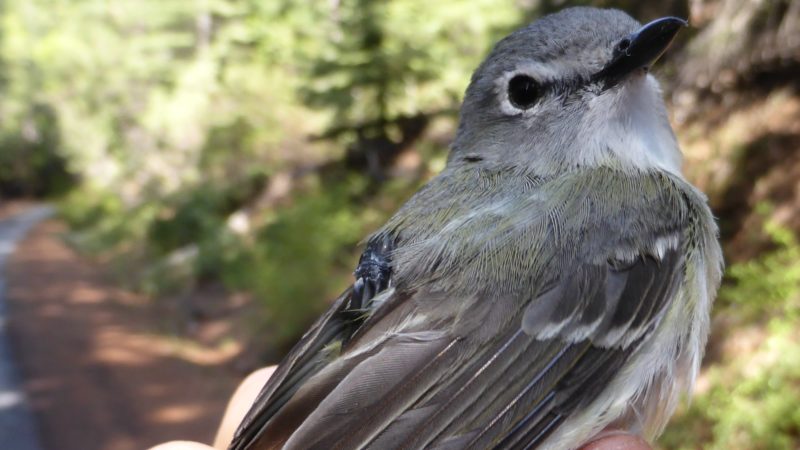Awardee: Richard Hedley
Department: Ecology and Evolutionary Biology
Funding Source: La Kretz Center Graduate Grant
My research aims to deploy geolocator tracking devices to track the migratory movements of Cassin’s Vireo. Central to my research is the concept of migratory connectivity, the idea that the location of a bird’s breeding territory may determine where they spend the winter, and vice versa. Recent declines in migratory bird populations have made this issue more pressing than ever. Without knowing where breeding populations spend the winter, it is difficult to pinpoint causes of declines, and to identify the best ways to prevent further declines – the complex life cycles of migratory birds mean population declines could equally be caused by factors on the breeding grounds or the wintering grounds, regions separated by hundreds or thousands of miles. By attaching geolocators to a population of Cassin’s Vireos breeding in the Sierra Nevada, I will be able to identify the wintering grounds for these birds, and assess whether they all winter in one prescribed area (strong migratory connectivity), or whether they disperse across their Mexican wintering range (weak migratory connectivity). I will also assess the impact of brood parasitism – a growing threat to bird populations in North America – on the timing of these movements, which will contribute to an understanding of the behavioral responses and strategies of songbirds when faced with a novel conservation threat. Bird migration is a topic that has fascinated researchers for hundreds of years, though our understanding of the behavior has been severely limited by an inability to track individuals throughout the year. My research will use cutting-edge technology to track migratory movements, contributing to a rapidly growing understanding of songbird migration.


